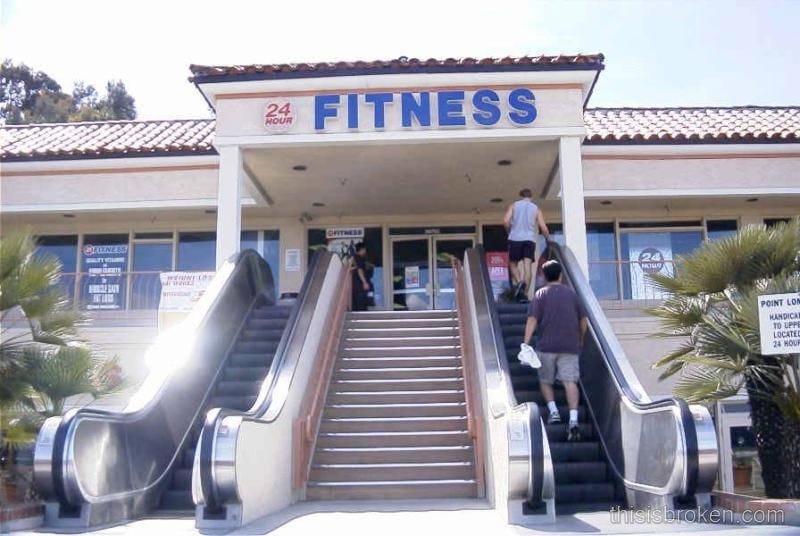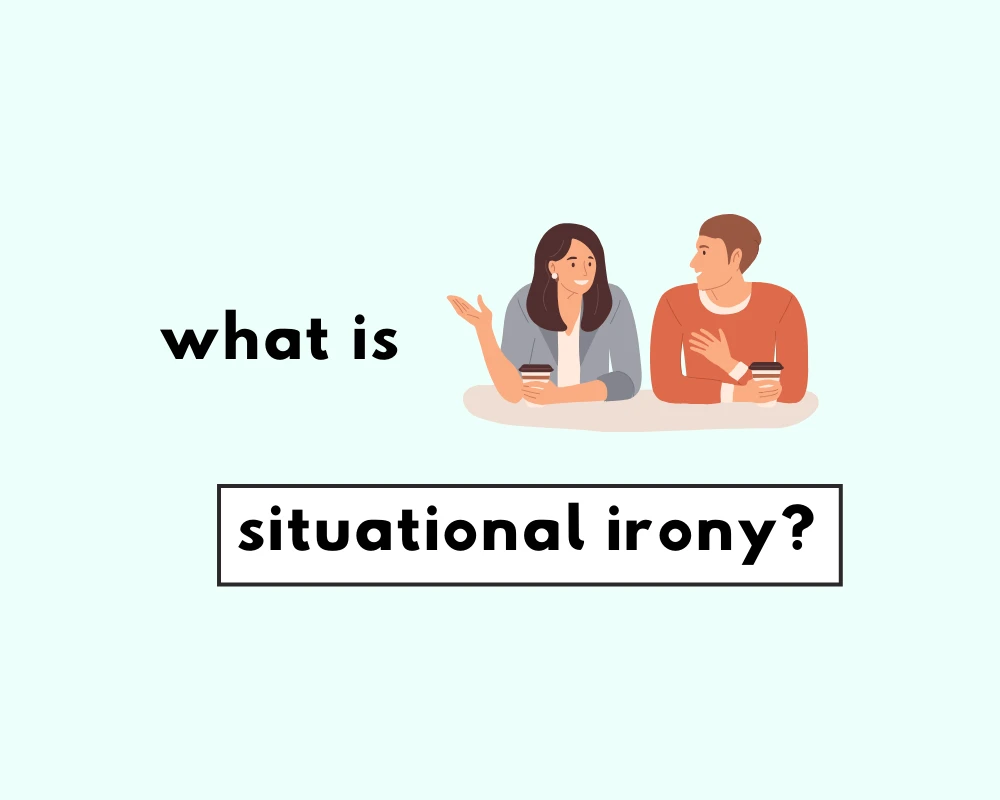
Contents
Toggle
What is situational irony?
A fire station burns down.
Someone on social media complains about social media.
A grocery store runs out of food.
Would you say that what each of these scenarios have in common is that they’re i-r-o-n-i-c, you’d be right. More specifically, they’re all demonstrations of situational irony; which is the topic of this post. So, what is irony, and what is not irony? Let us discern the difference, below.
The simple explanation of “irony”
`
If you visit the dictionary, they describe irony as something like, “a situation in which something which was intended to have a particular result has the opposite or a very different result”.
A more forceful way of putting it is that irony occurs when the result or outcome differs entirely or starkly opposes what’s expected, given the scenario (wither fictional or real).
Because irony occurs in regular life, speech and literature, there are three different types we categorize them into:
- Situational irony; (a literary device where a marked contrast between what’s expected to take place vs. what, in fact, takes place i..e, reality). It’s a literary curveball, so to speak.
- Dramatic irony
- Verbal irony
Types of situational irony
Also Known As: Irony of situation, irony of events, irony of behavior, practical irony, irony of fate, unintended consequences, irony of existence. There are four types of situational irony: cosmic irony, poetic irony, structural irony, and historical irony.
Cosmic irony
Also called irony of fate or circumstance, is when a higher power, (e.g., a god, magic or fate), intervenes resulting in ironic situations.
An example of cosmic irony occurs in the film Pulp Fiction by Quentin Tarantino. The two lead characters, Jules and Vincent, are shot at multiple times without getting hit, so inevitably Jules assumes that, “God must have stopped the bullets”, claiming it was a “divine intervention”.
Poetic irony
Also called poetic justice, is when “virtue is rewarded and misdeeds are punished”. To put it another way: poetic irony or justice is when the characters in the story get what they deserve.
These stories tend to be the most satisfying to watch. Disney movies are big on this type of irony, as is seen in the classic Disney film, The Little Mermaid. In the film, the evil sea-witch, Ursula, eventually is killed as punishment for trying to appoint herself as ruler of the sea.
Structural irony
Structural irony occurs when the narrator of a story has faulty perceptions of reality, or is delusional, ultimately influencing how the story is told/the audience’s understanding of the events.
In F. Scott Fitzgerald’s novel The Great Gatsby is narrated by Nick Carraway, a titular character who becomes friends with Jay Gatsby and observes the events surrounding Gatsby’s pursuit of wealth and love. The structural irony arises from the fact that Nick, the narrator, is an unreliable narrator. He tells the story from his point of view, but the reader gradually becomes aware of Nick’s biases and limited perspective.
Historical irony
Historical irony is when hindsight provides an ironic perspective on an action or stance made in the past. An example of this is when Chinese emperors sought to find an “elixir of mortality” which would make them immortal. As it happened, some of the emperors that drank this elixir would then die from its poisonous effects, since some contained mercury or arsenic.
Situational irony vs. other types of irony
The other main types of irony include verbal irony and dramatic irony. The difference between verbal irony and situational irony is that verbal irony is based on the literal words of what someone says vs. the intended meaning. Figures of speech like sarcasm, understatement or overstatement are all types of verbal irony. An example would be to say “the weather today is fantastic!“, when it’s actually gloomy and rainy outside. Chances are, the remark means the complete opposite of what is literally being said.
Situational irony is similar to dramatic irony, but the difference is that with situational irony, the reader learns of the events unfolding alongside the characters within the story themselves. With dramatic irony, the audience knows about key elements of the plot before the characters themselves do.
12 examples of situational irony
1. A fire station burning down
A fire station burning down is a paradigmatic example of situational irony, since it’s the exact opposite of what you’d expect to happen at a fire station.
2. A health nut getting food poisoning
A health who advocates for a strict, organic diet getting food poisoning from contaminated health foods they advocate for. This scenario not only presents a health-conscious individual facing an ironic health crisis but also challenges our assumptions about the correlation between lifestyle choices and well-being.
3. A snowball fight gets cancelled due to too much snow.
This is not fake news:The University of British Columbia, in British Columbia, Canada had to cancel their annual snowball fight because there was too much snow, (making the commute to and from campus, or wherever the fight was to be held, unsafe). They had to postpone the snowball fight to when there was just the right amount of snow.
4. A police officer getting a speeding ticket
A police officer receives a speeding ticket on the way home.
5. The noisy librarian
A librarian who constantly shushes noisy patrons ends up disrupting the silence with an embarrassing, inadvertent loud noise.
More examples of irony that’s situational
6. A marriage counsellor filing for divorce.
7. Running over and killing a squirrel on your way to the vet.
8. A waterpark burning to the ground.
9. A tow truck breaks down.
10. A PETA activist touting a leather purse.
11. A cybersecurity expert gets hacked.
12. A neurosurgeon getting a brain tumor.
13. Pharmaceutical companies getting involved in the substance abuse treatment industry.
Read about other literary devices
Sources
- Wikipedia contributors. “Chinese alchemical elixir poisoning.” Wikipedia, The Free Encyclopedia. Wikipedia, The Free Encyclopedia, 10 Sep. 2023. Web. 19 Nov. 2023.











